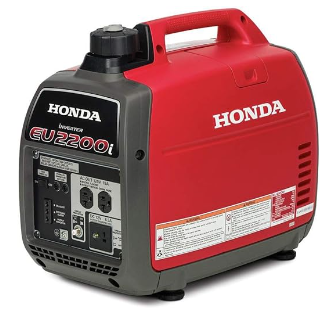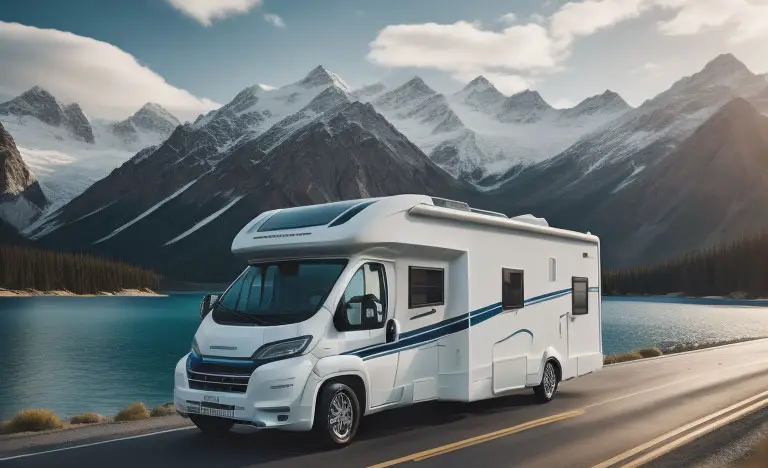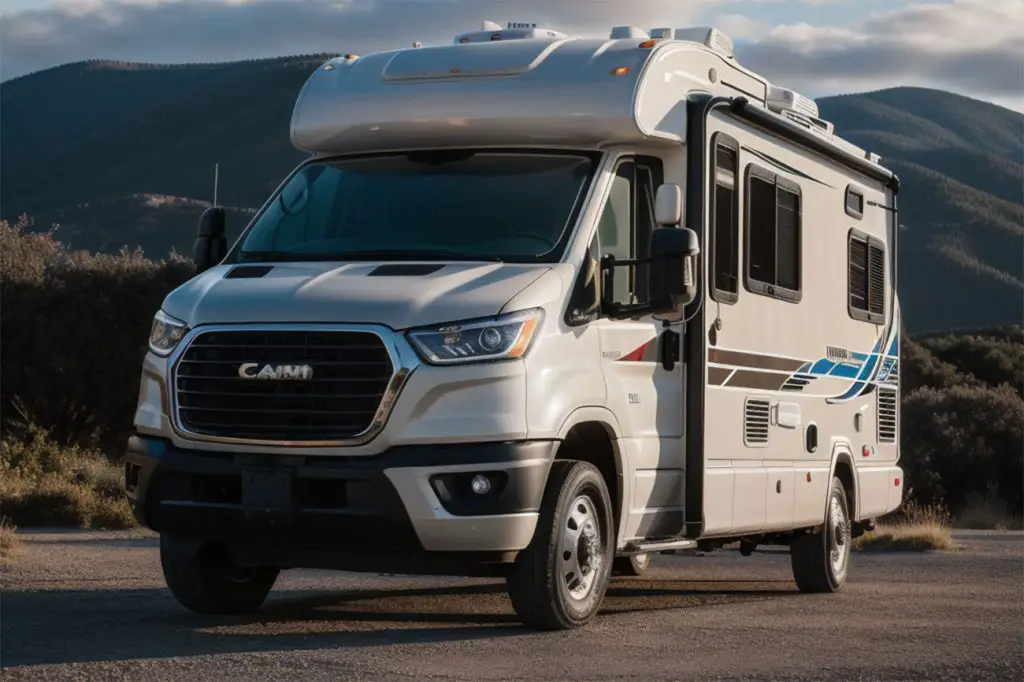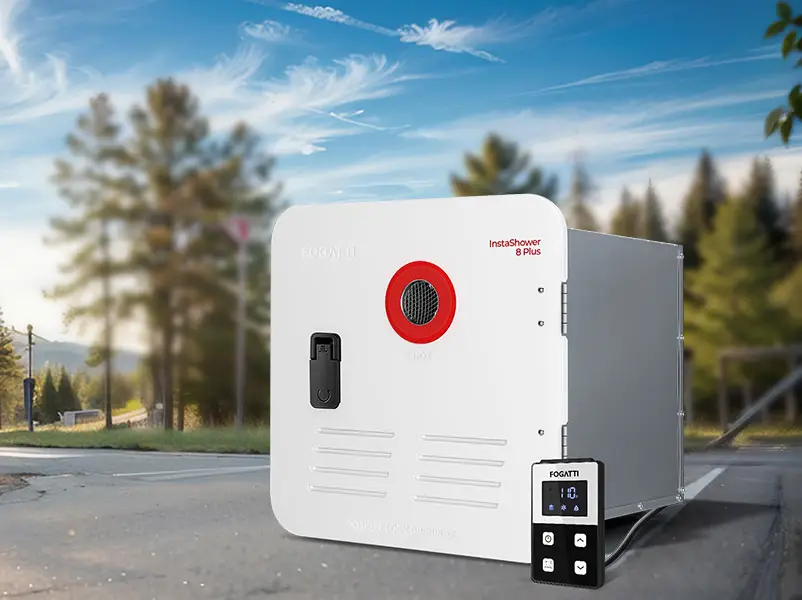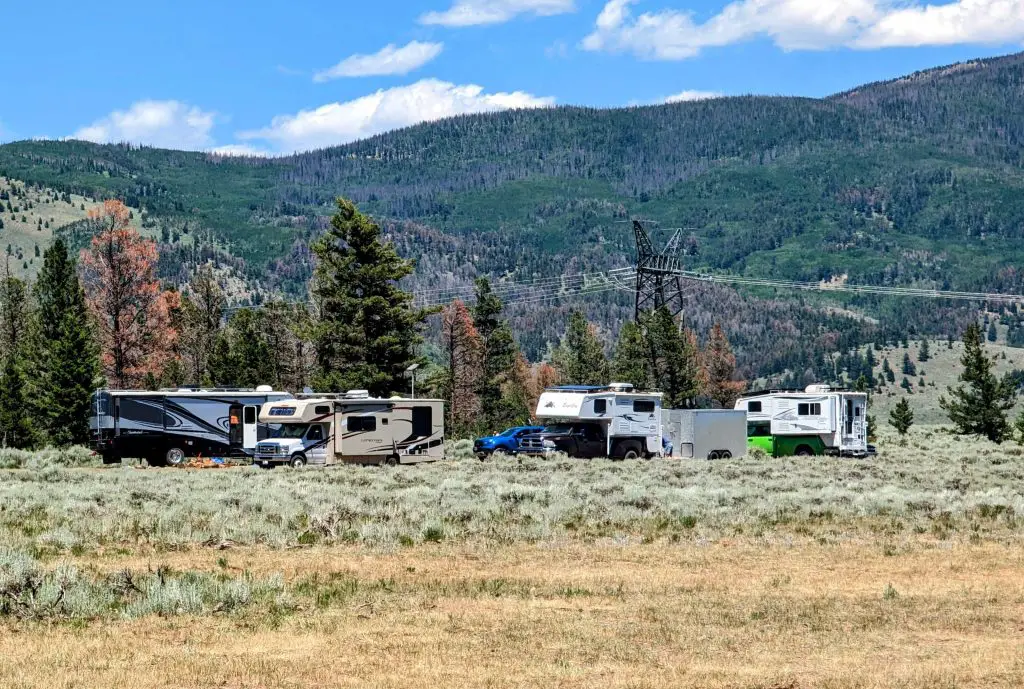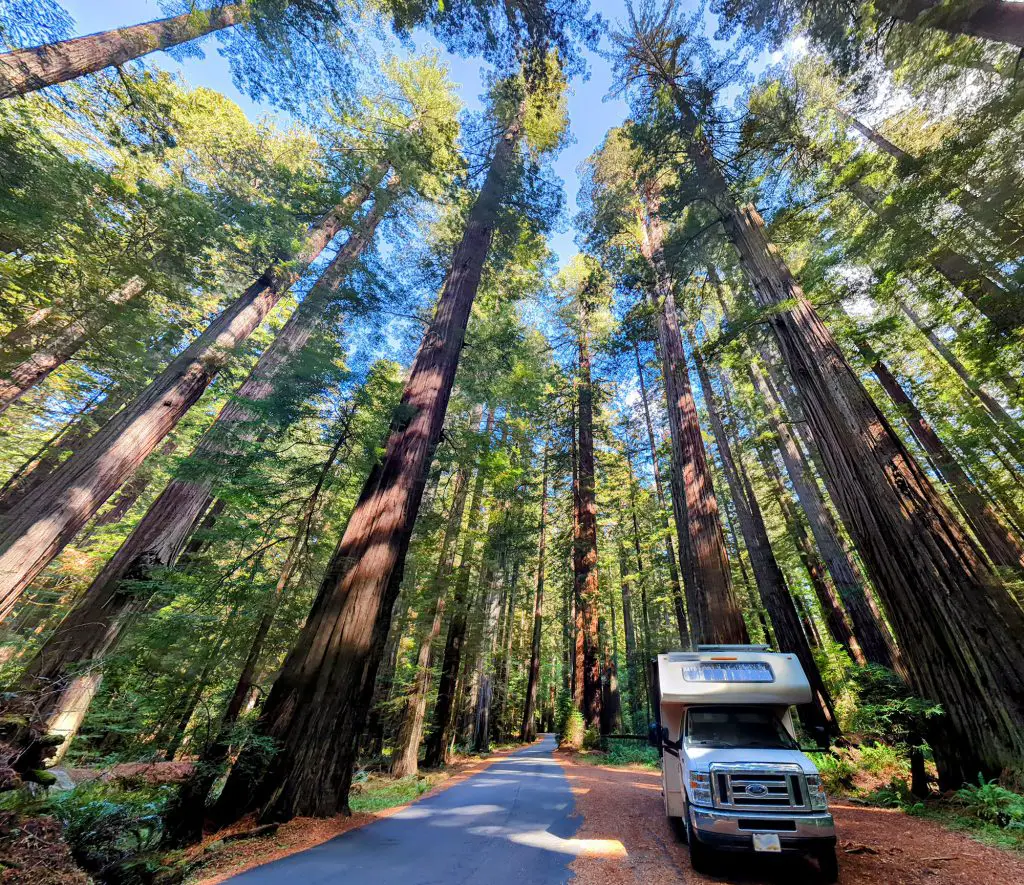Last Updated on February 14, 2024
Key Takeaways:
- RV Generator Types: Choose between conventional (larger, louder) and inverter generators (smaller, quieter, more fuel-efficient).
- Determining Power Needs: Make a list of appliances and their power requirements to find a generator with sufficient wattage.
- Maintenance: Regularly check oil, and filters, and follow manufacturer instructions for upkeep.
- Portability: Consider size, weight, and features like handles or wheels for easy transportation.
- Fuel Type: Decide between gasoline, diesel, propane, or natural gas based on availability and personal preference.
- Efficiency and Run Time: Look for generators with longer run times and fuel-efficient engines.
- Brand Reputation: Research reputable brands and check warranties for reliable support.
- Safety: Prioritize generators with safety features like low oil shutoff and overload protection.
- Compatibility: Ensure the generator integrates well with your RV’s setup and follows installation guidelines.
- Noise Level: Opt for quieter inverter generators, especially for campground use.
- Onan RV Generators: Follow manufacturer guidelines for maintenance, including periodic operation and oil changes using recommended oil types and change
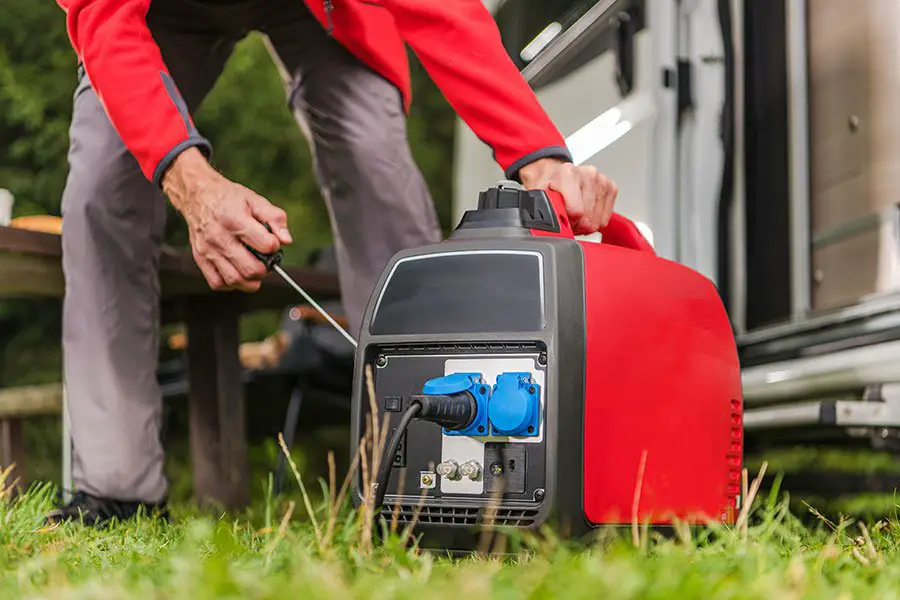 Whether you are a full-time RVer or just a weekend warrior, having a reliable source of power is vital to your comfort and enjoyment. Using solar power is great, but there will be cloudy days and that’s where RV generator comes in. A generator provides you with constant power, regardless of whether you’re dry camping in an RV park or roughing it out in the wilderness. But with so many RV generator options available in the market, where do you even begin? In this comprehensive guide, we’ve put together everything that you need to know about RV generators – from maintenance to what to look for when you’re buying one – so that you can make an informed decision and find the best RV generator for your next adventure.
Whether you are a full-time RVer or just a weekend warrior, having a reliable source of power is vital to your comfort and enjoyment. Using solar power is great, but there will be cloudy days and that’s where RV generator comes in. A generator provides you with constant power, regardless of whether you’re dry camping in an RV park or roughing it out in the wilderness. But with so many RV generator options available in the market, where do you even begin? In this comprehensive guide, we’ve put together everything that you need to know about RV generators – from maintenance to what to look for when you’re buying one – so that you can make an informed decision and find the best RV generator for your next adventure.
Understanding Different Types Of RV Generators
While it might seem like any generator could work for your RV, it’s important to consider the type of generator that will work best for your specific needs. There are two primary types of RV generators: conventional (referred to as ‘contractor’ or noise-maker) generators and inverter generators.
Conventional generators
Conventional generators can be more of a hassle because they are generally larger and louder than inverter generators. Conventional generators are well suited for RVers who need more power and can withstand loud noise.
Inverter generators
These modern RV inverter generators are more fuel-efficient, smaller, and quieter than conventional generators. They are the ideal generators for RVers who need noisless, efficient electrical power.
Determining Power Requirements
The next thing to consider is the amount of power that you need. This will depend on your particular RV and the appliances that you’ll be running. A typical RV might have a few outlets, a fridge, air conditioning, and a television. You should make a list of all the appliances that you will run, based on their power requirement, to determine the amount of wattage you will need from the generator. Generally, you’ll need to look for a generator with at least 2000 watts of power, but bigger rigs often require significantly more wattage. Make sure you are buying a generator that can handle the electric loads you will put on it.

Maintenance & Upkeep
A generator is a tool that needs proper maintenance and care to keep functioning efficiently. The best time for maintenance is before and after recognizing a problem. Consider checking the oil, air filters, and fuel filters before every use and cleaning them regularly. It is essential to follow manufacturer instructions and recommendations for generator maintenance repairs lubrication, and replacements.
Portability & Size
If you are an RVer, there’s a good chance you’ll be moving around a lot. Therefore, it’s important to consider the size and weight of the generator, as you’ll likely be lifting it in and out of storage compartments or rear bumper racks and moving it around for gas refills. Consider buying a generator with handles, wheels or anything that will make moving it around less tiresome.
Power Output
Determine your power requirements by considering the appliances and devices you plan to use in your RV. Calculate the total wattage needed and choose a generator with sufficient power output to handle your load comfortably. It’s recommended to opt for a generator with a slightly higher power capacity to accommodate any additional power needs in the future.
Fuel Type
RV generators commonly run on gasoline, diesel, propane, or natural gas. Each fuel type has its advantages and considerations. Gasoline is widely available but may have shorter run times. Diesel generators tend to be more fuel-efficient and offer longer run times but can be more expensive. Propane and natural gas generators are cleaner-burning options and often have quieter operation. Consider your fuel availability, budget, and personal preferences when selecting the fuel type.
Portability and Size
Consider the portability and size of the generator based on your RV’s storage capacity and your intended usage. If you plan to move frequently or have limited space, a compact and lightweight generator may be preferable. Portable models with built-in handles and wheels offer ease of transportation.
Run Time and Efficiency
Evaluate the generator’s run time on a full tank of fuel and its fuel efficiency. Longer run times can be beneficial, reducing the frequency of refueling. Look for generators with fuel-efficient engines and features like automatic idle control, which adjusts the engine speed based on the load, conserving fuel.
[amazon bestseller =”silent generator” items=”3″]
Brand Reputation and Warranty
Research the reputation and reliability of different generator brands. Read customer reviews, seek recommendations, and consider brands known for their quality and durability. Additionally, check the warranty provided by the manufacturer to ensure proper support and coverage in case of any issues.
Safety Features
Look for safety features such as low oil shutoff, overload protection, and spark arrestors, which help prevent damage to the generator and ensure safe operation.
Installation and Compatibility
Consider the installation requirements and compatibility with your RV. Some generators may require professional installation or specific connections to integrate with your RV’s electrical system. Ensure the generator you choose is compatible with your RV’s setup and meets any installation guidelines.
Noise Level
This is an important factor to consider when buying an RV generator. One of the joys of RV camping is enjoying the peace and quiet of the great outdoors. If your generator is too loud, you may disturb your neighboring campers. Inverter generator models, which are known for fuel-efficiency and portability, usually operate at a lower decibel output than the traditional generators, making them perfect for RVers who want a quieter option.
Onan RV Generators
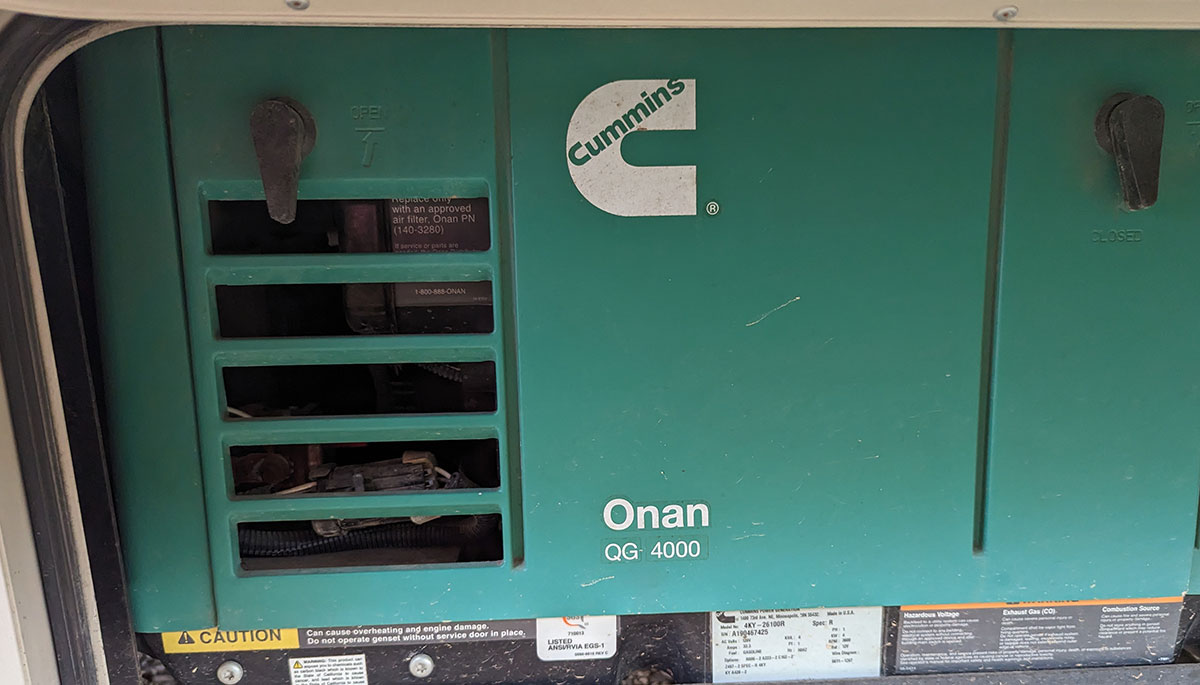 Motorhomes are often equipped with convenient built-in Onan generators, which is why I thought it is important to talk about those. Ensuring their optimal performance is essential, even if you rarely utilize them. By periodically turning on the generators every few weeks and subjecting them to a substantial load, such as your air conditioner, you can maintain their functionality and extend their lifespan. It’s important to note that Onan generators also require regular oil changes to operate smoothly. To guarantee the best results, it is generally advised to utilize a high-quality, API-certified oil with a viscosity grade suitable for the expected temperature range. If you find yourself uncertain about the process, the Owner’s Manual is your reliable companion. Within its pages lies the key to success: the manufacturer’s recommended oil type and viscosity grade, tailored specifically to your unique Onan generator model. Following these steps ensures that your motorhome’s Onan generator remains in excellent working condition, ready to provide you with reliable power whenever you need it.
Motorhomes are often equipped with convenient built-in Onan generators, which is why I thought it is important to talk about those. Ensuring their optimal performance is essential, even if you rarely utilize them. By periodically turning on the generators every few weeks and subjecting them to a substantial load, such as your air conditioner, you can maintain their functionality and extend their lifespan. It’s important to note that Onan generators also require regular oil changes to operate smoothly. To guarantee the best results, it is generally advised to utilize a high-quality, API-certified oil with a viscosity grade suitable for the expected temperature range. If you find yourself uncertain about the process, the Owner’s Manual is your reliable companion. Within its pages lies the key to success: the manufacturer’s recommended oil type and viscosity grade, tailored specifically to your unique Onan generator model. Following these steps ensures that your motorhome’s Onan generator remains in excellent working condition, ready to provide you with reliable power whenever you need it.
API Certification: Look for oil that is API-certified, which ensures that it meets the quality standards set by the American Petroleum Institute (API). The certification is typically displayed on the oil container and assures that the oil has undergone testing and meets the required performance criteria.
Viscosity Grade: The viscosity grade of the oil refers to its thickness and flow characteristics at different temperatures. It is denoted by two numbers, such as 10W-30 or 15W-40. The first number represents the oil’s viscosity at cold temperatures, while the second number represents its viscosity at operating temperatures. Choose the viscosity grade recommended in the owner’s manual based on the expected temperature range in which your generator will operate.
Synthetic vs. Conventional Oil: Synthetic oils generally offer better performance and protection, especially in extreme temperatures and high-stress conditions. If your generator will be subjected to demanding usage or extreme temperature variations, using a synthetic oil may provide added benefits. However, ensure that the oil meets the specifications outlined in the owner’s manual.
Oil Change Intervals: Follow the recommended oil change intervals as provided by the manufacturer. Regular oil changes are essential to maintain optimal generator performance and longevity.
Remember, it is crucial to consult the specific requirements outlined in the owner’s manual of your Onan generator for accurate and detailed information on the recommended oil type, viscosity grade, and oil change intervals.
How often to change the oil in the generator?
The frequency of changing the oil in your RV generator can vary depending on the specific generator model and usage. It’s essential to consult the manufacturer’s guidelines and the generator’s owner’s manual for the recommended maintenance schedule. Typically, RV generator oil should be changed at regular intervals or after a certain number of hours of operation, such as every 100 to 150 hours or annually.
To check if the generator oil is still good, follow these steps:
Before checking the oil, ensure that the generator has been turned off and has had sufficient time to cool down. Hot oil can cause burns, so exercise caution.
Locate the Oil Dipstick: The oil dipstick is usually located on the side or top of the generator engine. Consult the owner’s manual to locate the specific dipstick for your generator model.
Remove and Wipe the Dipstick: Remove the dipstick from its housing and wipe it clean with a lint-free cloth or paper towel. This step ensures that you get an accurate reading of the oil level and condition.
Inspect the Oil Level: Reinsert the dipstick into its housing completely and then remove it again. Observe the oil level on the dipstick. There are usually “Full” and “Add” or “Low” markings on the dipstick indicating the acceptable oil level range. Ensure the oil level falls within this range. If it is below the “Add” or “Low” marking, you may need to add oil as per the manufacturer’s recommendations.
Assess the Oil Condition: Besides the oil level, examine the oil’s appearance and color. Fresh oil typically has a transparent amber color. If the oil appears excessively dark, gritty, or has a burnt smell, it may indicate contamination or that the oil has deteriorated. In such cases, it’s advisable to replace the oil even if it hasn’t reached the recommended interval.
Replace the Oil: If the oil level is low or the oil appears degraded, it’s time to replace it. Follow the specific instructions outlined in the generator’s owner’s manual for the correct oil type, oil capacity, and oil change procedure. It’s crucial to use the recommended oil type and maintain the proper oil level for optimal generator performance and longevity.
Regularly checking and changing the generator oil ensures the smooth operation and longevity of your RV generator. Adhering to the manufacturer’s guidelines and maintaining a consistent maintenance schedule will help keep your generator running reliably and efficiently.
Conclusion
RVing is about having the freedom to see new places, make memories, and experience different adventures. And, every RVer deserves to have a reliable source of power while they’re out on the road. This is why investing in the best RV generator is essential to your RV experience. Hopefully, by now, you have a better understanding of what to look for when buying an RV generator- from power requirements to size and portability, noise level, etc. By considering these factors, you’ll be able to choose the right generator for your RV that will make your adventure safer and more enjoyable. Remember, as you embark on your next travel adventure, always carry spare gasoline or oil, (for a gasoline-powered generator) and keep your manual readily accessible just in case you need help figuring things out.


